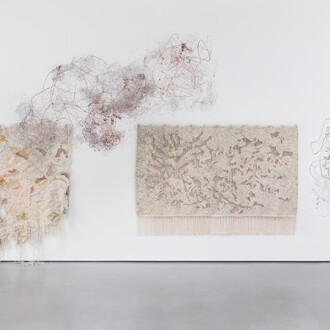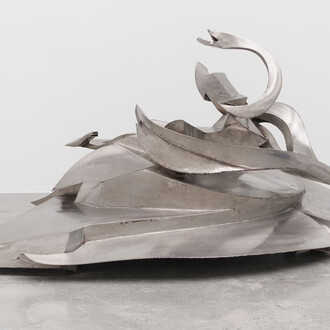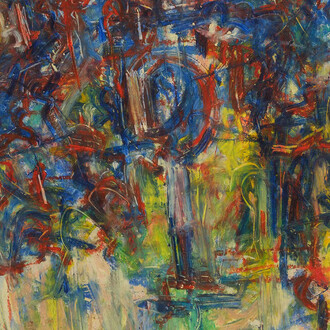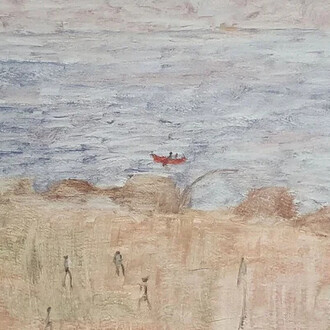Spinello Projects presents The last man, the gallery debut solo exhibition by Cuban-born artist Marlon Portales.
The gallery will feature a series of new paintings that engage deeply with issues surrounding masculinity, identity, relationships, and eroticism. Through a combination of historical and contemporary references and aesthetics, he creates a body of work that is both deeply personal and universally resonant.
Portales’ reverence for art history is evident in works inspired by masterpieces such as David Hockney’s Portrait of an artist (pool with two figures), Édouard Manet’s Le déjeuner sur l’herbe and the romantic, dreamlike atmospheres of the Pre-Raphaelites, infusing his paintings with movement and sensuality. In this suite of paintings, Portales portrays characters and narratives within fictional, dreamlike settings. In these settings, nature plays a symbolic role, often depicted as tropical and seductive, enveloping the characters in an aura of mystery and desire. His figures are often adorned in reflective gold and silver armor or dressed in baroque- inspired fashion, merging elements of history painting with modern sensibilities. Portales uses nocturnal scenes in the exhibition to express his belief that a person’s true nature emerges more vividly at night. These works explore the metaphorical shadows of the human psyche, where the self and the other, the real and the imagined, are intertwined.
A central piece in the exhibition, also titled The last man, features a man pierced by arrows while standing in a boat, accompanied by a woman with closed eyes, and another figure swimming below. This evokes the martyrdom of Saint Sebastian, a symbol associated with suffering and male beauty. Here, Portales uses this imagery to reflect on the confusion surrounding male identity in contradicting discourse about traditional gender roles and the pressures imposed by societal expectations. Portales seeks to envision a new kind of man, liberated from these imposed definitions.
In these paintings, masculinity is fluid and complex. Portales imbues characteristics traditionally deemed feminine, such as vulnerability, beauty, and empathy, into the identities of his male subjects and vice versa. The characters seem to exist in a state of constant transformation, confronting a state of change that questions the attributes we value, embodying the tension between who they are and who they are expected to be.
Portales invites viewers to confront their own self-concept and the conflicts between the personal and the societal. It is a space of reflection, transformation, and liberation, where the boundaries of identity are questioned and reimagined. Through this exhibition, Portales asserts his position as a significant voice in contemporary figurative painting, offering a poignant and visually stunning meditation on the nature of masculinity in the modern world.
















